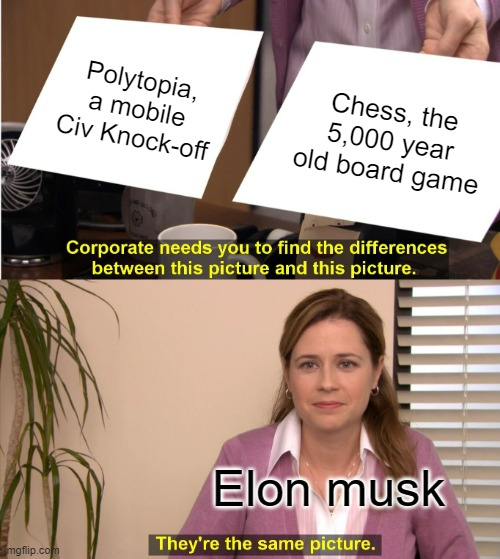Bull vs. Bear is a new, once-weekly feature where the VettaFi writers’ room takes opposite sides for a debate on controversial stocks, strategies, or market ideas — with plenty of discussion of ETF ideas to play either angle. For this inaugural edition of Bull vs. Bear, Evan Harp and Nick Peters-Golden debate the strategic and tactical investment case for the pioneering electric vehicles stock, Tesla (TSLA).
Evan Harp: Hello Nick! I’m thrilled to be kicking this off with you by doing one of my favorite activities: dragging Elon Musk. I’m a Tesla bear for several reasons, but first and foremost is the founder. When people try to say Musk is a genius or an innovator, I just don’t get it. He’s a guy who has complained about pronouns, committed some mild securities fraud, and even murdered some animals. All of this is before we even start digging into his numerous sexual assault scandals, the failure of Tesla’s products, or his mistreatment of workers. With such a toxic CEO at the head and other automakers making strides toward hybrids and EVs, I see Tesla’s time in the spotlight as ending.
Given all of Musk’s mounting issues, it might be wise for investors to start kicking the tires on some of the single-stock Tesla bear ETFs, like the Direxion Daily TSLA Bear 1X Shares (TSLS).
Nick Peters-Golden: Hi Evan! Always great to engage in some thoughtful debate. Look, I have my concerns about Elon Musk–and they’re pretty serious—but he’s not who I’m thinking about when I think about Tesla because the company is much bigger than its founder. So I’m focused on the positive end of the outcome spectrum, the world in which Tesla plays a vital role in the electrification of the automobile industry, which isn’t just a massive transformation of the American economy, but a crucial part of the fight against climate change. One of the Biden Administration’s signal successes has been investing in a national electric car plug-in network, for which Tesla set the blueprint. With semiconductors–an important part of EV construction – in flux, I think that Tesla’s existing supply chain has a nice advantage compared to the new guys trying to scale up to compete with them in the short term.
Overall, I’m looking at the Direxion Daily TSLA Bull 1.5X Shares ETF (TSLL) as a really exciting way to ride Tesla out of this difficult market — it’s a single-stock ETF with a lot of short-term flexibility. But if you’re looking for a more set-and-forget approach to the firm, take a look at ETFs like the Consumer Discretionary Select Sector SPDR Fund (XLY) or the Vanguard Consumer Discretionary ETF (VCR) for passive coverage at a cool ten basis point fee. XLY has a 17.6% weight in Tesla, while VCR has a 16.5% portfolio weight.
Evan Harp: I think the semiconductor situation could end up biting Tesla in the long run, especially if the Biden administration succeeds at nurturing domestic production capabilities. The supply chain advantages Tesla has now are temporary, and they aren’t doing it any favors as the company is coming up short on its revenue goals and is poised to miss its delivery growth goals. I’ll admit Tesla has played a vital role in EV development so far, but it certainly feels like that’s changing.
As reasonable as it sounds to think about Tesla without Musk, I don’t think you can easily separate the two. For better or worse, Tesla’s brand is tied up in his brand, and his brand is (deservedly) taking hits left and right these days. He’s a landmine for the Tesla stock, and I don’t see any evidence of that changing. The guy just can’t seem to help but embarrass himself (and, by extension, Tesla.) Just the other day, he tried to drag chess for not having “enough features,” comparing it unfavorably to a mobile Civilization knock-off game. 
Electric vehicles are going to be critical in the fight against climate change, and frankly, it is shameful we aren’t already fully transitioned. That said, other automakers are catching up with a lot of room to grow, while Tesla is (correctly) getting booted from ESG indexes due to its massive failures in the ‘S’ and ‘G’ parts of ESG. To me, Tesla looks like a company that skyrocketed to the top and is crashing down faster than anyone realizes without a steady hand at the till, while its competitors are poised for exponential growth. So if I wanted to play continued strength and growth in the EV market, I’d probably consider funds like the Global X Lithium & Battery Tech ETF (LIT), which provides exposure to companies that are iterating on and improving the batteries that make EVs function. And for the long-term bears out there like me, LIT has no exposure to Tesla.
Nick Peters-Golden: Not to rehash some buzzwords from this wild year, but those delivery growth challenges are, well, transitory – particularly as logistic aftershocks from the pandemic like those facing the Port of Los Angeles are wrapping up. If you look under the hood at Tesla, you’ll find all the signs of a healthy business – an operating margin up by 262 basis points year over year, revenues less and less dependent on regulatory credits, and steady expansion of the charging network.
You don’t have to listen to me, either: You can ask Cathie Wood. I know I still want growth in my portfolio right now, and if Cathie’s still adding Tesla shares, I want a piece of that, too. While I agree that the firm has ESG issues, I’d argue those are symptomatic of a broader need to hone ESG and, frankly, think about disambiguating the E from the S and the G altogether. The social and governance components of ESG are too often ignored because, let’s face it, the environmental component has the strongest investment case and plenty of urgency. Tesla absolutely fails on the S and G metrics, but I’m buying for the E nine times out of ten.
Listen, we both know what Elon really wants to be doing: He’s a Poster. He lives to post. That’s why if his Twitter buy goes through, he’ll have a new toy to get all his energy out. Meaning when he works on Tesla, he’ll be all business. Frankly, it’ll let the talent at Tesla do what they do best – push the limits of electric vehicles.
Evan Harp: My closing consideration here is that, though there are challenges in how ESG is defined (and that’s a whole separate discussion), the failures of Tesla in the ‘S’ and ‘G’ side will cause them to bleed talent, I think. It’ll be interesting to see what happens – these are all great thoughts, and I’ve enjoyed this discussion!
Nick Peters-Golden: Likewise, it was nice to hear your thoughts on this key storyline in the market right now — thanks so much!
For more information, please visit VettaFi.








